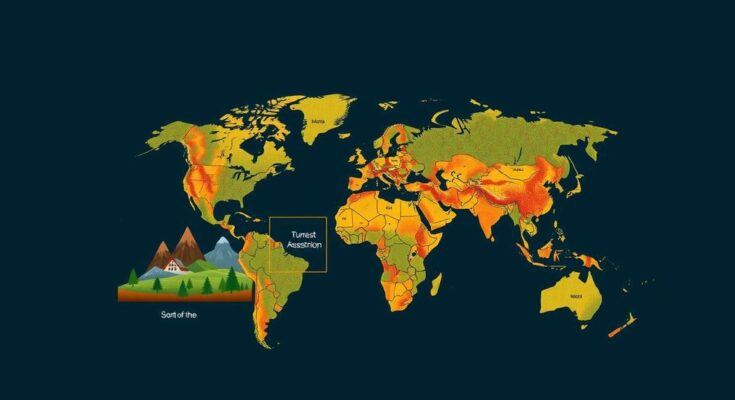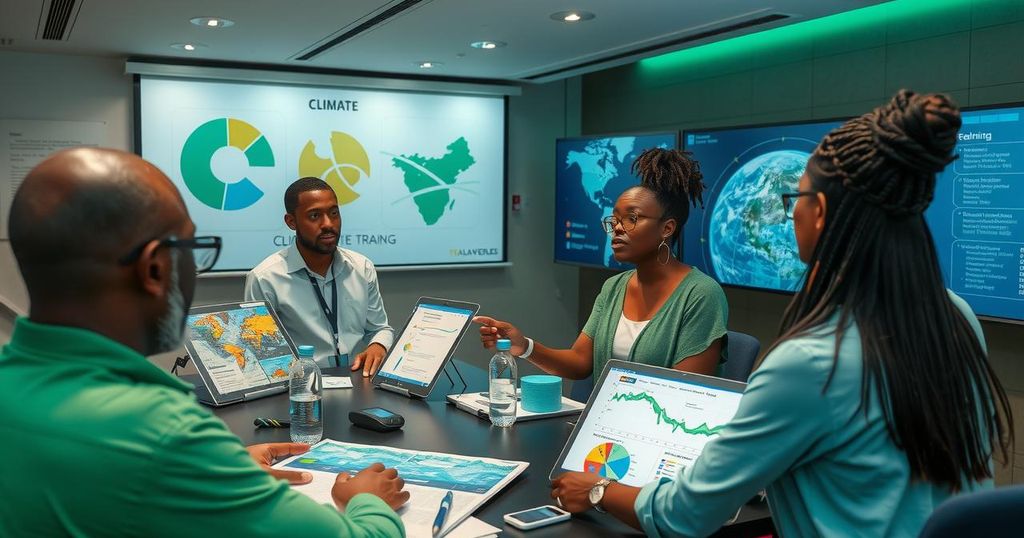The World Meteorological Organization’s annual report reveals alarming increases in greenhouse gas emissions, especially carbon dioxide, aggravated by severe wildfires. With atmospheric carbon dioxide reaching levels similar to those millions of years ago, experts warn of a worsening climate crisis ahead of international climate talks. The need for ambitious action against fossil fuel reliance is increasingly critical as the world grapples with rising temperatures and accelerating climate impacts.
The United Nations weather agency has released its annual Greenhouse Gas Bulletin, emphasizing the urgent implications of escalating greenhouse gas levels in the atmosphere as international climate talks approach. The report indicates that severe wildfires contributed significantly to the rapid increase of greenhouse gases, particularly carbon dioxide, which has reached concentrations comparable to levels not seen in millions of years. The World Meteorological Organization (WMO) warns that current emissions from fossil fuels and cement production outpace the planet’s ability to absorb them, perpetuating a cycle of environmental decline. Ko Barrett, Deputy Secretary-General of the WMO, stressed that even minor increases in temperature could have severe repercussions on global ecosystems, sea levels, and human health. As the upcoming 29th U.N. climate negotiations in Azerbaijan approach, the need for action against fossil fuel reliance becomes increasingly pressing, particularly against the backdrop of significant commitments made during the 2015 climate talks. The report illustrates that the accumulation of carbon dioxide in 2023 has reached unprecedented levels. In the last year alone, climate-related disasters, including severe wildfires in Canada and Australia, have exacerbated an already dire situation. The WMO indicated that the past two decades of fossil fuel emissions represent a critical factor driving this phenomenon, leading to carbon dioxide levels of 420 parts per million. Furthermore, the agency cautioned that climate feedback mechanisms such as wildfires could further increase emissions while simultaneously impairing natural absorption methods. As global temperatures rise, the challenges before us intensify, urging immediate and collective action to mitigate future impacts.
The context of this article revolves around the annual climate talks organized by the United Nations, where countries convene to address pressing climate issues, particularly greenhouse gas emissions and their impact on global warming. The WMO’s Greenhouse Gas Bulletin serves as a critical assessment of atmospheric conditions, illustrating the trends in greenhouse gas emissions and their implications for climate change. The report highlights the consequences of industrial and human activities on carbon dioxide levels and emphasizes the dire projections related to sea-level rise, temperature increases, and ecosystem degradation. It also provides a backdrop for international discussions aimed at curbing emissions and promoting sustainable practices while underscoring the economic and political challenges nations face as they navigate energy reliance and climate commitments.
In summary, the latest WMO Greenhouse Gas Bulletin underscores the dramatic rise in greenhouse gas emissions, principally carbon dioxide, due to human and industrial activities exacerbated by severe climate events. As global temperatures hover around a concerning increase of 1.2 degrees Celsius, the forthcoming U.N. climate negotiations in Azerbaijan are poised to address these dire circumstances. The imperative for action against fossil fuel emissions cannot be overstated, as the ramifications of climate change are becoming increasingly evident. Immediate global cooperation is crucial to address the escalating challenges and minimize further environmental degradation.
Original Source: www.benarnews.org




